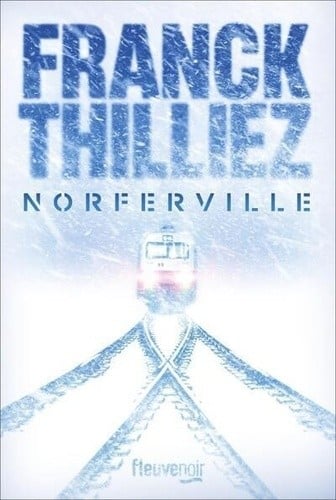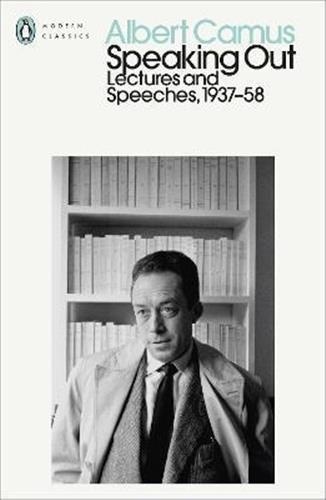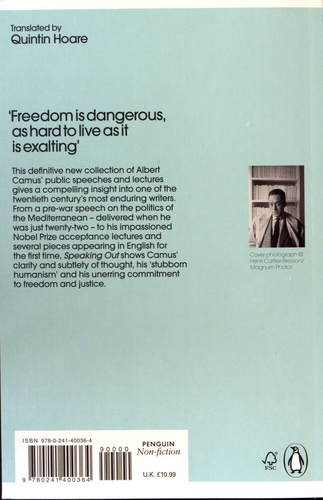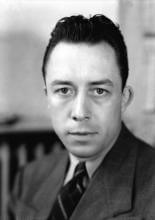En cours de chargement...
This definitive new collection of Albert Camus' public speeches and lectures gives a compelling insight into one of the twentieth century's most enduring writers. From a pre-war speech on the politics of the Mediterranean - delivered when he was just twenty-two - to his impassioned Nobel Prize acceptance lectures and several pieces appearing in English for the first time, Speaking Out shows Camus' clarity and subtlety of thought, his "stubborn humanism" and his unerring commitment to freedom and justice.








